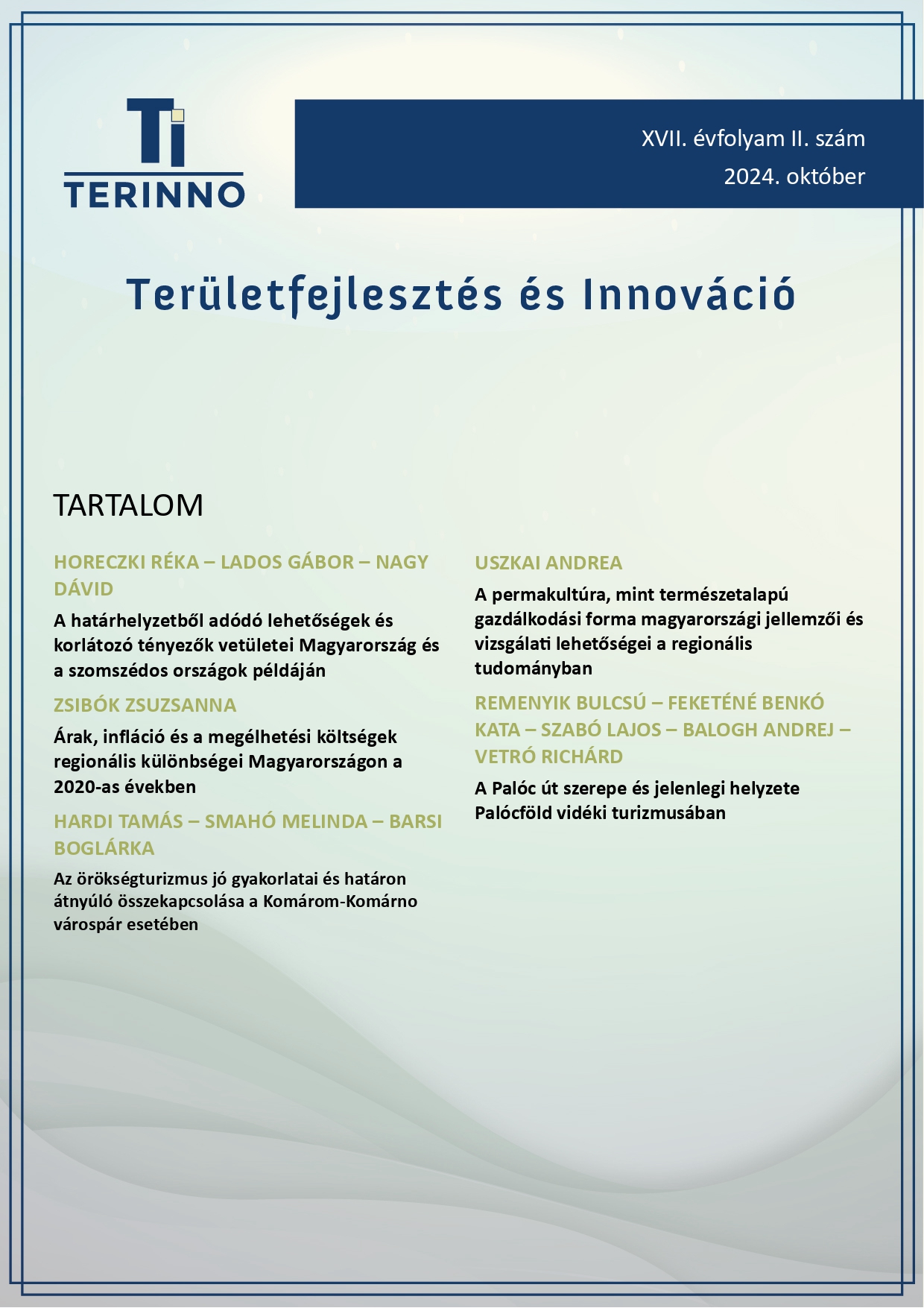Permaculture as a nature-based farming method: Characteristics and research opportunities in regional science in Hungary
DOI:
https://doi.org/10.15170/terinno.2024.17.02.04Keywords:
permaculture, sustainability, regional science, innovationAbstract
Nowadays, conventional farming methods may be less and less suitable to reduce the negative impacts of climate change and produce safe, high quality and healthy food. In response to these needs, various forms of nature-based farming, including permaculture farming, have started to spread more intensively in recent years in Hungary, which deserves special attention because its approach and methods can be applied in urban and rural areas. In Hungary, the first application of permaculture principles dates back to the 1990s, but its popularity has only increased since 2010. In the past, this form of nature-based farming was mainly the subject of agroecological research, primarily focusing on the study and testing of different agricultural methods. However, many aspects of it have not yet been explored in regional science. This study aims to familiarise the reader with the most typical characteristics of permaculture farming, its history and specific features in Hungary, and to show the potential for research in the field of regional science.Downloads
Published
2025-01-03
How to Cite
Uszkai, A. (2025). Permaculture as a nature-based farming method: Characteristics and research opportunities in regional science in Hungary. Területfejlesztés és Innováció, 17(2). https://doi.org/10.15170/terinno.2024.17.02.04
Issue
Section
Tanulmányok

